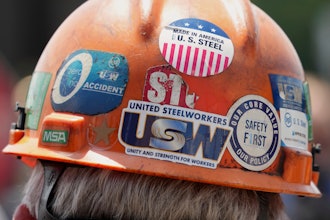Two years ago, a plant manager at York Building Products in Pennsylvania was fired after less than two weeks on the job, because management got sick of him repeatedly reporting air quality and other safety and health hazards.
Well, now the company is going to pay for it. After an OSHA whistleblower investigation, the masonry company settled and agreed to pay the worker $135,000 in back wages and compensatory damages.
Shortly after he started at York, which is one of the largest producers of masonry units (cinder blocks), he identified several safety and health problems at the plant; including excessive dust, and exposure to noxious chemicals. He also received multiple complaints from plant employees, so he brought it up to the plant operations manager, on a daily basis.
After a week on the job, another worker came to the manager and said the dust was making him sick. So he went back to operations manager and suggested that they perform an air quality test. He not only denied the request, but denied that the company even had a problem, and then fired the manager.
But he would not go quietly into the night. Instead, he filed two complaints with OSHA, one alleging safety and health hazards at the plant, and the other said the company fired him in retaliation for reporting these hazards.
A week later, OSHA checked out the plant and found 38 violations that resulted in $38,880 in fines. Air samples showed that some employees had been exposed to 14 times the allowable amount of silica dust. And according to OSHA, such exposure could lead to silicosis - a disabling, non-reversible and sometimes fatal lung disease, as well as chronic bronchitis; lung cancer and kidney disease.
The whistleblower investigation found York also violated the Occupational Safety and Health Act. So they not only have to pay the $135,000, but they also have to provide supervisors with anti-retaliation training, and post the OSHA poster entitled, "Job Safety and Health, It's The Law."
Given the whistleblower status of the case, the manager’s name remains confidential, but the case is an important reminder that no worker should fear retaliation for raising safety concerns.
This is IEN Now with David Mantey.






















